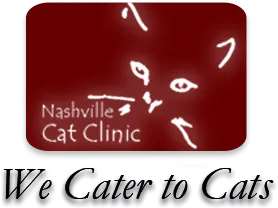When to Get Help
Spend any time at a veterinary emergency hospital and you'll see that some people who bring their pets in didn't need to -- the condition was minor and could have waited until morning.
But then you worry about the people you don't see: those who don't recognize a truly life-threatening illness in their pets. Will those pets make it until morning? And how much suffering will they endure until then?
A really sick pet may be pretty obvious, as with an animal who has been in a bloody fight or has broken bones after being hit by a car. But not all medical emergencies are as obvious, so how can you tell the difference?
First and foremost: Call your veterinarian (or an emergency veterinary clinic if it's after hours). It's better to make a call, or even a trip, you needn't have made than to put your pet's life at risk. Normal findings and peace of mind are, as they say, "priceless."
Otherwise, taking your "ain't doing right" pet's temperature is a good place to start figuring out if more help is needed. Normal is between 100 and 102.5 degrees Fahrenheit for dogs and cats. Anything below 99 or above 103 is worth checking with a veterinarian, day or night.
Some other "see the vet now" indicators include seizure, fainting or collapse, as well as any suspected poisoning (including antifreeze, rodent poison, snail bait or human medication). Snake or spider bites, too, demand immediate attention. Cats in particular can be fatally sensitive to insecticides (such as flea-control medications that are safe for dogs), petroleum-based products or medications such as Tylenol.
Sometimes situations that might not seem urgent really are, such as eye injuries or allergic reactions -- swelling around the face or hives. A single incident of vomiting or diarrhea is probably nothing, but anything more than two or three times within an hour or so could indicate a serious problem. Other signs of possibly serious conditions are breathing problems, chronic coughing or difficulties urinating or defecating, the latter especially in cats.
Animals can sometimes seem fine after accidents, even after being hit by a car, exposed to extreme heat or cold, or being cut or bitten. Even if your pet looks OK, you need to take him to a veterinarian right away to check for internal injuries that can kill if left untreated.
There are also situations that may not be life-threatening but are certainly painful enough to warrant immediate veterinary attention. Some of the signs of an animal in pain include panting, labored breathing, lethargy or restlessness, loss of appetite, aggression, hiding or crying out.
While it may be possible to wait until your regular veterinarian is available when the problem is "only" pain, put yourself in your pet's place. Would you want to hurt all night if you could get relief sooner? Of course not, so we're back to the first point: When in doubt, call the vet. Have first-aid supplies ready. Preparing for an emergency is always good advice.
The first step: Program your veterinarian's phone number into your cell phone under VetE (for veterinarian emergency).
Next: Assemble a first-aid kit.
Basic supplies include: adhesive tape, antihistamines (such as Benadryl), antiseptic (such as Betadine), cotton (balls, swabs and rolls), corn starch or styptic powder (such as Kwik Stop), Karo syrup, tweezers, hydrogen peroxide, scissors, sterile gauze (pads and rolls), pet thermometer, antibiotic ointment, anti-diarrheal (such as Pepto-Bismol), clear plastic cling wrap (such as Saran Wrap), activated charcoal and a water-based lubricating jelly (such as K-Y). Add a soft fabric muzzle (for dogs) or a restraint bag (for cats), since an animal in pain may lash out.
You can buy a ready-made kit from a pet retailer. Hunting-dog outfitters, such as Gun Dog Supply, have extensive selections of kits in durable containers -- no surprise, since an injury to a working dog may happen far away from a veterinarian.
Finally, remember the Boy Scout motto: "Be prepared." Check locally for pet first-aid and CPR classes to take before you need them. And read up. Amy Shojai's "The First-Aid Companion for Dogs and Cats" (Rodale Books, $20) is one of the best books on pet first aid around.– Dr. Marty Becker and Gina Spadafori
